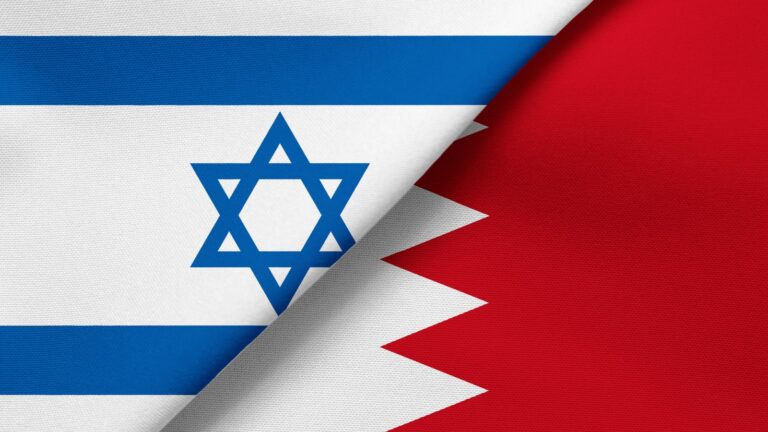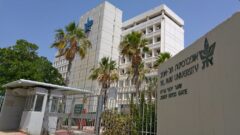
Bahrain and Israel agree to normalize diplomatic relations
‘These countries would like Israeli knowhow, technology and security cooperation,’ says former intelligence official.
by Abigail Klein LeichmanWhen Israeli Prime Minister Benjamin Netanyahu goes to Washington this week to sign the Abraham Accord with officials from the United Arab Emirates, he will also sign a normalization agreement with the Persian Gulf nation of Bahrain, it was announced on Friday.
“It took us 26 years to get from the second peace agreement with an Arab state to the third peace agreement, and it took us not 26 years but 29 days to reach the peace agreement between the third Arab state and the fourth Arab state, and there will be more,” Netanyahu said, referring to the August 13 normalization agreement with the UAE.
A joint statement released by Netanyahu, US President Donald Trump and Bahrain’s King Hamad bin Salman al-Khalifa announced “the establishment of full diplomatic relations between Israel and the Kingdom of Bahrain.”
Trump said, “In the spirit of peace and cooperation … they will exchange embassies and ambassadors, begin direct flights between their countries, and launch cooperation initiatives across a broad range of sectors, including health, business, technology, education, security, and agriculture. This is a truly historic day.”
Located north of Qatar and east of Saudi Arabia, Bahrain is a small archipelago made up of 40 natural islands and 51 artificial islands. With a population of 1.7 million people, its main exports are crude oil and petroleum products.
In a phone call with members of the press Saturday night, former head of the Mossad’s Intelligence and Foreign Operations Division Haim Tomer echoed Netanyahu’s remark that the UAE and Bahrain treaties with Israel followed “hard, behind-the-scenes work over years.”
Tomer said Bahrain was one of several Gulf countries in which attitudes toward Israel have been shifting dramatically since 2011 and with which he was in touch discreetly before retiring from Israel’s national intelligence agency in 2014.
“These countries would like Israeli knowhow, technology and security cooperation,” said Tomer. “They don’t want to do it in a limited way through secret relations; they want to broaden relations and get the fruits of strategic cooperation.”
More News

At Rosh Hashana, Israel’s population reaches 9.25 million
By Naama Barak
Bacteria could provide us with next-gen antiviral drugs
By ISRAEL21c Staff
Israel, UAE, Bahrain sign historic Abraham Accords
By Abigail Klein Leichman
In first, Israeli lingerie brand shoots campaign in UAE
By Naama Barak
Israeli tech will help reshape world after pandemic
By ISRAEL21c Staff
Online 24-hour bootcamp to create 100 startups overnight
By ISRAEL21c Staff
Israel’s Innovation BaseCamp to build tech park in Panama
By Abigail Klein Leichman
Experts strategize ways to relieve Covid’s social impact
By Abigail Klein Leichman
Chocolate, booze, porn: How men and women cope with Covid
By Brian Blum
Soccer star Messi captains a global vision-tech dream team
By ISRAEL21c Staff
Zebrafish help scientists speed up tests for medical cannabis strains
By Abigail Klein Leichman
In first, Israeli shoe store to open shop in UAE
By Naama Barak
Organized sports improve mental resiliency during Covid-19
By Brian Blum
UBQ Materials builds waste conversion plant in Netherlands
By Abigail Klein Leichman
Cancer patients may not have higher Covid-19 risk
By Brian Blum
Latin American nations get new access to Israeli tech
By ISRAEL21c Staff
Rare ancient royal mansion unearthed in Jerusalem
By Abigail Klein Leichman
Can you pass along genetic changes from your environment?
By Brian Blum
First ever flying EMS car to go into development
By Brian Blum
Study finds two drugs can reduce cancer spread after tumor removal
By Abigail Klein Leichman